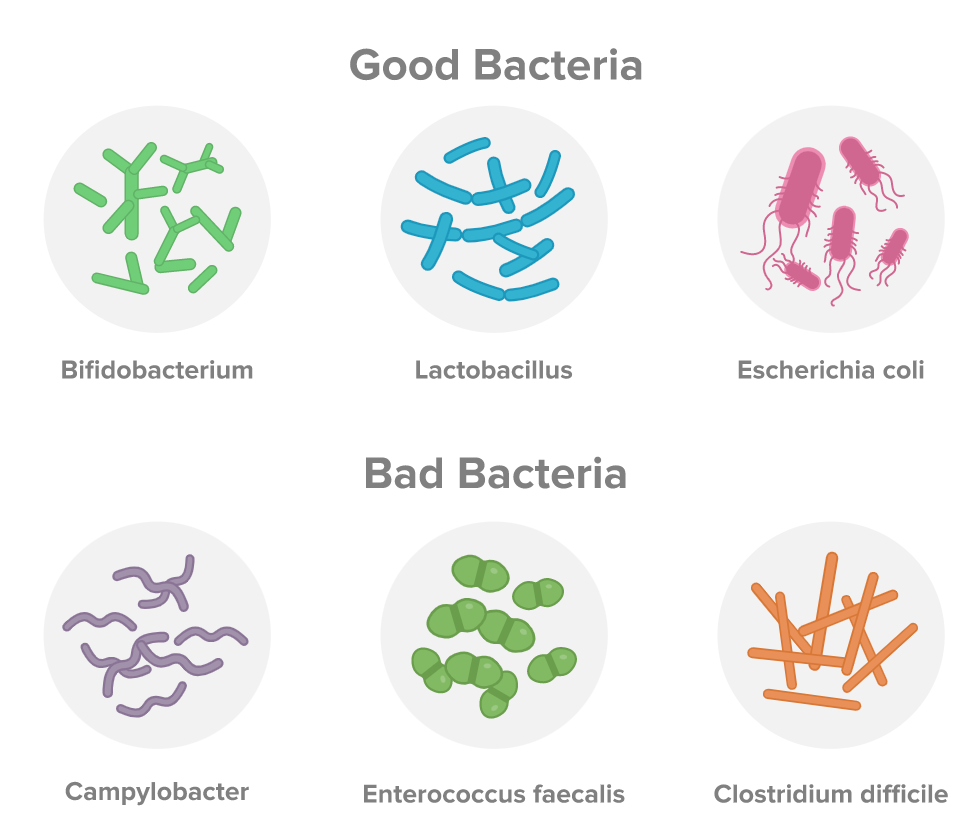Gut microbiome + mood.
Have you viewed your gut for other health benefits other than digesting food and producing waste? Do you pay attention to what you eat and how it may affect your mood? Recent research has uncovered the benefits of the gut-brain axis. The gut and the brain communicate together via the vagus nerve.1 The tiny microorganisms in our body impact our health more than we may know. The gut microbiome comprises 400-1000 bacterial species that have beneficial roles in immune health, brain development, and behavior.1,2
This post is to focus on the benefits of the gut microbiome and the effects on depression. More than 21% of the population battles major depressive disorders (MDD), or what we call “depression.”1,2 The primary pharmaceutical treatment for MDD is selective serotonin receptor inhibitors (SSRI). SSRIs prevent neural uptake of serotonin in the gut and brain. The gut-brain axis interaction has driven research to dig more into the gut microbiota as an interest of therapy for depression.1
Researchers have discovered that the Lactobacillus and Bifidobacterium family of bacteria have positive benefits in improving mood and depression.1,2 First, researchers compared the stool composition of both depressive and non-depressive individuals to determine if there was an identifying stool signature to assist in the diagnosis of depression.1 The discovery was those with depression had a stool signature composed of Enterobacteriaceae and Alistipes and decreased Faecalibacterium, Coprococcus, and Dialister. The study showed that we may tailor gut microbiota by administering probiotics to reconstruct a healthy gut and optimize the management of depression.1
Probiotics affect the metabolic pathways of tryptophan, creating an increase in serotonin, reducing depressive symptoms. Lactobacillus is effective in treating depression due to the effects on this metabolic pathway and on inflammatory markers.1 The first use of probiotics was among the Greeks and Romans that consumed cheese and fermented products.2 Probiotics decrease gastrointestinal pathogens and discomfort, flatulence and bloating, and improve bowel regularity. They may also help improve the skin’s function, protect DNA, and fight against pollen allergies. Huang and colleagues performed a series of studies regarding probiotics on depressed and non-depressed individuals. They found that probiotics reduce the risk of developing depression among non-depressed individuals.2 There is strong evidence of probiotics’ benefits for overall health, especially for depression and other mood disorders.
Many food sources naturally provide probiotics. A few are yogurt, kefir, kombucha, miso, pickles, sauerkraut, traditional buttermilk, cheese with live active cultures, tempeh, and kimchi.3 I recommend you find what tastes better to you. For me, I love miso soup and kombucha. I cannot stand the taste and texture of sauerkraut, so I avoid it. If you don’t receive probiotics from whole food sources, supplementation is another option. I recommend the following to clients manufactured by Thorne Research or Onnit, FloraPro-LP Probiotic, FloraSport 20B, or Total Gut Health. If you are looking for a supplement in your local market, look for these bacteria on the nutrition label: Lactobacillus, Bifidobacterium, and Bacillus Coagulans.
- Nanthakumaran S, Sridharan S, Somagutta M et al. The Gut-Brain Axis and Its Role in Depression. Cureus. 2020;12(9). doi:10.7759/cureus.10280
- Huang R, Wang K, Hu J. Effect of Probiotics on Depression: A Systematic Review and Meta-Analysis of Randomized Controlled Trials. Nutrients. 2016;8(8):483. doi:10.3390/nu8080483
- Palsdottir H. 11 Probiotic Foods That Are Super Healthy. Healthline. https://www.healthline.com/nutrition/11-super-healthy-probiotic-foods#TOC_TITLE_HDR_1. Published 2021. Accessed March 12, 2021.
- Greenberg M. Feeling Depressed? Gut-Brain Dysfunction May Be to Blame. Psychology Today. https://www.psychologytoday.com/us/blog/the-mindful-self-express/201812/feeling-depressed-gut-brain-dysfunction-may-be-blame. Published 2021. Accessed March 10, 2021.
- Chang T, Chang W. Ultimate Guide for Gut Health | NuLiv Science. Nulivscience.com. https://nulivscience.com/research/ultimate-guide-gut-health. Published 2021. Accessed March 10, 2021.


